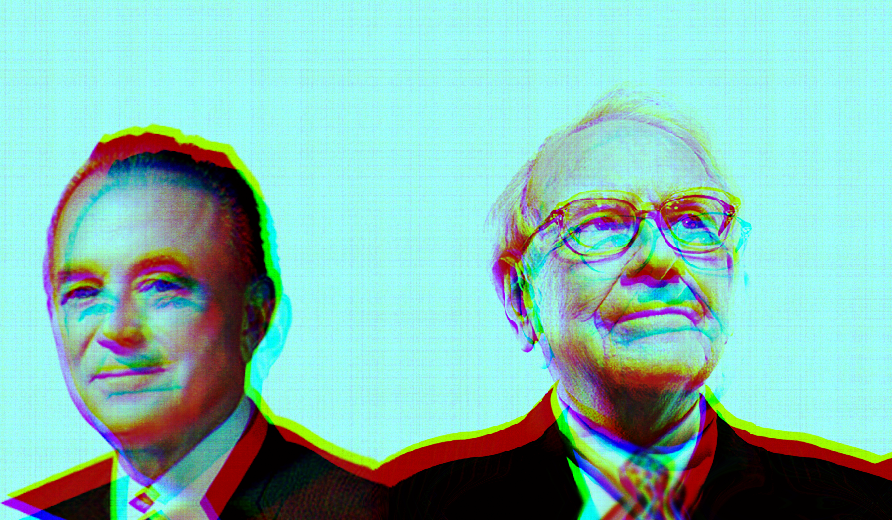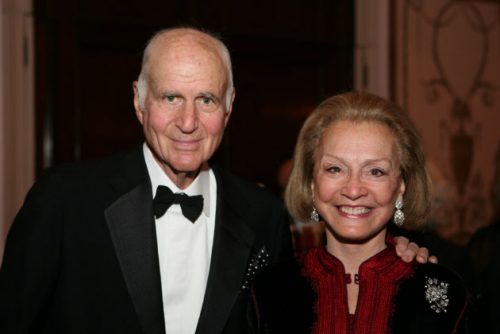The stories we tell about philanthropists, such as Ray Kroc or Warren Buffet, matter because they suggest an implicit vision of society and social change.
Watching even the first few minutes of the recent HBO documentary film, Becoming Warren Buffet proves (as if proof of a truism were needed) that narration is narrative.
We see Buffet briskly walking to his car early in the morning to drive himself to work; we see him stopping at the local McDonald’s to pay in cash (with exact change) for a sausage McMuffin; we see him delivering folksy platitudes to highschoolers, who for their part look on eagerly.
It all works to convince us that the ‘Wizard of Omaha’ is indeed an Average Joe—if one who just happens to currently be valued at more than $76 billion. We even learn that Buffet agonizes over the price of that daily McMuffin and that, when the market’s down, he skips the extra bacon.
Now, to be sure, there’s something close to sincere about Buffet’s particular brand of homespun charm. He’s a local boy made good, and has given over $1 billion in donations to his home state of Nebraska. But he can't be properly called a "philanthrolocalist," saying a few years ago that he’s not very interested in getting involved with “specific local projects”: “I’m not [funding] things to have my name on them or to be a big shot locally or that sort of thing,” he told the Omaha World Herald.
Even this measure of chilly distance, however, still manages to serve the same image of avuncular thrift that Buffet is trying to cultivate with his insistence of a daily drama over the price of a McMuffin: ‘I’m not Warren Buffet, the man who could buy and sell you ten times before breakfast’, we’re lead to believe, ‘No, I’m good ol’ Warren from Omaha, who just wants to make an honest day’s dollar.’
The image is quite in stark contrast to that we get from another recent film depiction of a different American tycoon. In The Founder, Michael Keaton plays Ray Kroc, the man who brought McDonald’s hamburgers to the mass market. The film (an adapted drama, it should be noted, not a documentary) succeeds in showing Kroc’s tenacity, vision, and gumption alongside his greed, callousness, and ambition. Keaton’s depiction of Kroc is at times sympathetic and sensitive, but ultimately paints him in a decidedly unflattering light.
Undoubtedly there are those who would challenge the film’s depiction, but in any case it’s one that’s already been borne out by more disinterested reporting on the fast-food mogul’s rise to power. This ambivalence sits at times uncomfortably on the screen, such that, as film critic Matt Zoller Seitz wrote in a review, the movie is both “mesmerized [and]horrified” by its own subject: “[The Founder is] an ad that becomes a warning before circling around and becoming another, darker kind of advertisement.”
What’s common to both films is the challenge of narration, of recording for posterity the stories that we tell about our Great Men.
Kroc wanted to be seen as a red-blooded capitalist, a champion of the free market and an apostle of positive thinking; the film about him can’t help but show the costs (emotional, financial, and otherwise) of his particularly aggressive brand of creative destruction. Famously, Kroc was barely interested in philanthropy, and it fell to his wife Joan to give away most of his fortune after his death.
Buffet, on the other hand, wants to be seen as the reasonable, personable billionaire who hasn’t let extraordinary wealth compromise his basic goodness; the film about him grants him this courtesy but in the meantime also manages to bring to light how that no-nonsense identity tests his closest personal relationships (the film’s attention to Buffet’s family life is particularly interesting in this regard).
Since it is the money of men like Buffet and Kroc that largely determines the architecture of our current philanthropic settlement, the stories we tell about them matter. They matter because they suggest a certain implicit vision of society and social change.
And yet, for that same reason, we ought not to let them have the last words about themselves. Movies like The Founder and Becoming Warren Buffet help bring these gray areas more clearly into focus and thus prove a resource for anyone looking for insight into our ruling class of philanthro-oligarchs.






